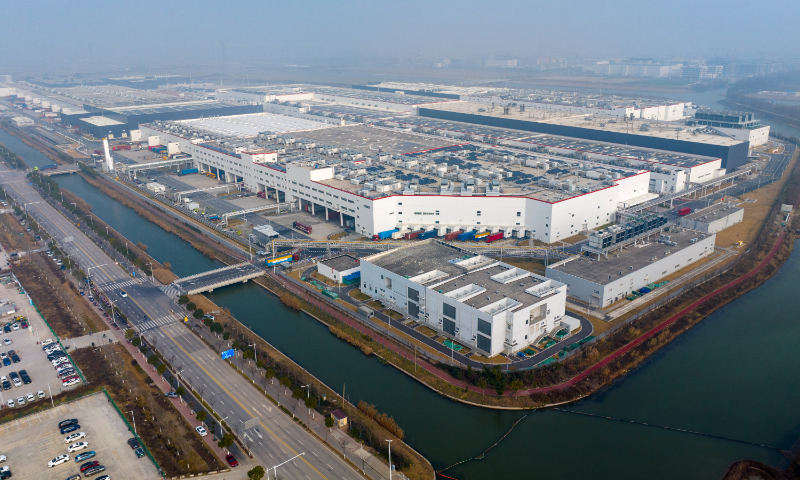Tesla’s mega battery plant in Shanghai Lingang obtains construction permit

US carmaker Tesla’s mega battery plant in Shanghai has obtained a construction permit, making it the first energy storage mega project outside the US. The plant is expected to enter mass production in the first quarter of 2025.
Megapack is a powerful battery that provides energy storage and support, helping to stabilize the grid supply and prevent outages.
The new mega project was included in a new project service pack in Lingang New Area within the China (Shanghai) Pilot Free Trade Zone, meaning the enterprises there can directly contact responsible departments for a more efficient response and problem-solving mechanism since the early start, said Min Zhiguang, an official from Lingang.
The giant battery plant, covering a total area of 200,000 square meters and with an investment of 1.45 billion yuan ($200.27 million), plans to produce 10,000 Megapack units annually with a total energy storage scale of up to 40 gigawatt-hours. Each of the unit can store more than 3 megawatt-hours of electricity, which can be integrated into the renewable power system, peak demand management and other multi-scenario applications, local officials said.
In contrast to the US government’s stubborn efforts to suppress China’s emerging industries, the streamlined granting of the construction permit by Shanghai is just another example showcasing China’s earnest efforts to attract foreign investment.
Thanks to China’s bid to continuously optimize business environment and high-quality opening-up, foreign businesses are confident in the Chinese economy and remain committed to expanding their operations in the Chinese market, many business leaders from Asia, Europe and North America told the Global Times at a global trade and investment promotion summit in Beijing on Monday, which drew participants from over 30 countries and regions.
As the Biden administration reportedly plans to impose additional tariffs on EVs, semiconductors, solar panels and medical supplies imported from China, experts noted that the protectionist move only reveals its defensive mindset and its struggle in competing with China's new-energy industry, and the US protectionism will backfire.
Meanwhile, Chinese officials criticized the US government’s ill-intended smearing of China's economic growth prospects and US officials’ seeking to suppress China's leading industries with absurd claims such as "overcapacity."